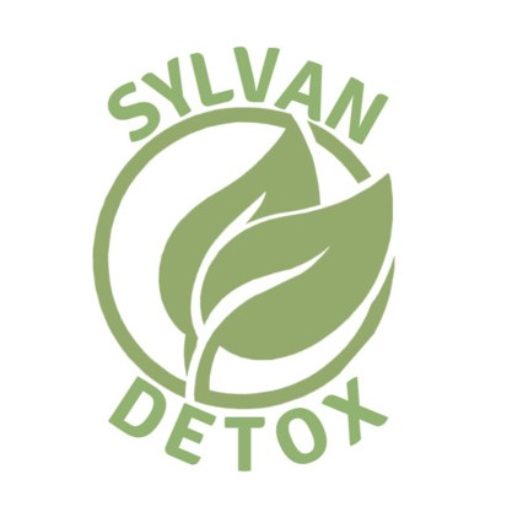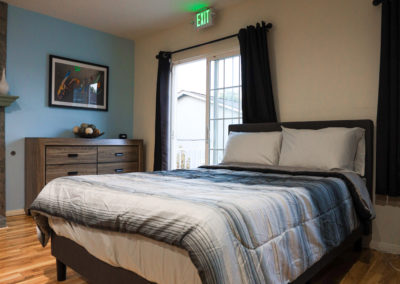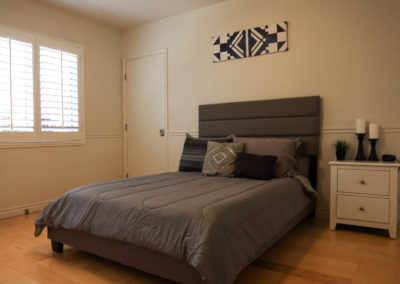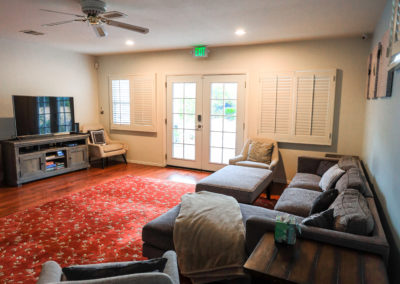#1 Alcohol & Drug Rehab in Los Angeles California
Our dedicated staff is ready to answer your questions about addiction, detox, and recovery. We want to help your or your loved one get the help they need to start on the road to recovery.


Call us to get started with recovery from drug and alcohol addiction.
Providing high-quality care to those who are working towards a clean and sober life is our #1 priority.
Sylvan Detox is certified by the Joint Commissions. We achieved this by our dedicated staff and high-end facility meeting the gold standard for treatment.


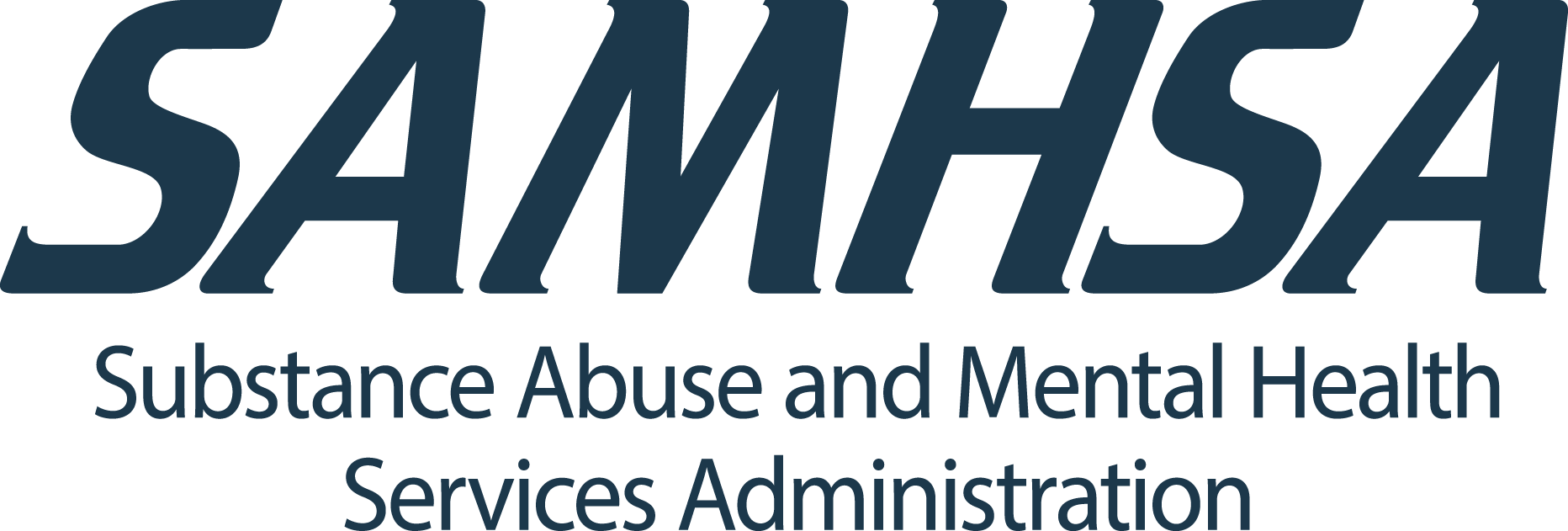
We Work With Many Other Insurance Companies! Click Here to Verify Your Benefits
The Sylvan Difference
Luxury Facility
Sylvan Detox is the perfect environment for clients to detox with comfort. Modern furniture & fixtures, as well as semi-private rooms are key features of our facility. Get comfortable in our spacious common rooms and enjoy access to outdoor living areas.
In addition to luxury, safety is also a top priority at our center. 24/7 security and on-site staff keeps all residents safe and secure around the clock.
Medically Assisted Treatment
24/7 monitoring is just the start to the treatment measures offered at our facilities. We also offer medically assisted treatment to ensure a safe and comfortable detox process.
Alternative Therapies
In addition to medically assisted treatment, clients are also encourage to take part in the alternative therpaies we offer on site. These treatments include yoga, sound therapy, massage, and much more!
Dedicated Staff
Our detox facilities are home to the best of the best when it comes to addiction treatment professionals. From nurses and addiction therapists, our staff is dedicated to providing each and every client with the highest quality care possible.
Lavish Amenities
From our luxury mattresses to plush comforters, every item in our semi-private rooms was curated specifically to supplement your physical and mental wellbeing.
Keep busy between programming by taking advantage of our fun and relaxing amenities. Game consoles, foosball, and corn hole are just a few of the games you can enjoy. Additional amenities include a 24 hour stocked snack area, common areas, and an hour patio with a barbeque.
Fully Licensed & Accredited
24/7 Help Hotline
Most Insurance Accepted
Medically Assisted Treatment (MAT)
100% Confidential & Private
Tour Our Facilities
Take a tour of our residential and medical detox facility. Your road to recovery begins here & now.
We’d Love To Talk To You!
#1 Alcohol and Drug Rehab in Los Angeles, California
Rehab Near Me: Best Detox & Rehab Center for Addiction in Los Angeles
Sylvan Detox offers 24-hour clinically supervised detox and residential treatment that involves medically sanctioned therapies and alternative treatments that support recovery. Our partner rehab centers in Los Angeles offer outpatient treatment programs for clients who want to continue their treatment journey after completing their inpatient rehab program. Our clients come from all across Los Angeles County and beyond. We treat clients from West Los Angeles, Woodland Hills, Hollywood Hills, Juan Capistrano and other communities in Orange County. Let our certified doctors and therapists help you stop struggling with addiction and start rebuilding your life.
Drug Detox Program
Top Alcohol Rehab in Los Angeles
Drug Rehab in Los Angeles
Sylvan’s drug addiction treatment program is designed for clients addicted to street drugs like heroin, cocaine, and meth and prescription drugs such as opioid painkillers like Fentanyl, benzodiazepines like Xanax, and stimulants such as Adderall. Mental health treatment such as cognitive behavioral therapy helps clients understand how their thoughts and behaviors fostered the development of their addiction. Working with therapists, they then develop strategies for changing those unhealthy patterns and practicing strategies for coping with their triggers to use. We also offer many holistic treatments such as nutrition and wellness groups that can enhance the recovery process.
How Much Does Rehab Cost in Los Angeles?
How Long Is Detox?
How Long is Rehab?
Addiction treatment centers in Los Angeles, California feature treatment programs that vary in time. At Sylvan, many clients complete their treatment milestones in about a month, but some clients require a longer time in rehab before they feel stable enough to manage their addiction without the robust level of support available at our inpatient treatment center. Clients who have been struggling with addiction for years or who are suffering from a dual diagnosis, for instance, may benefit from 60 or 90-day treatment programs. After completing their treatment plan at Sylvan, many clients transition to one of our partner outpatient rehabs in Los Angeles for intensive outpatient treatment, which can provide support for clients as they transition back to their everyday lives.
30 Day Rehab
Sylvan’s Detox’s 30-day addiction treatment plans include evidence-based treatments like cognitive behavior therapy as well as holistic therapies like nutrition and wellness groups that are known to support recovery. Clients can expect to meet daily with therapists and participate in both one-on-one treatment sessions and group therapies. Residential inpatient treatment is highly structured to help clients build a strong foundation for their continued recovery. Sylvan offers a wide range of treatments for clients to include in their treatment plan. Some of our addiction therapies include dialectical behavioral therapy, denial management, goal setting, life skills, and relapse prevention.
Long Term Rehab
Many clients benefit by long term rehab stays where they can get the comprehensive support they need for lasting recovery. At our rehab and detox center, clients can expect 24-hour support as they complete their recovery milestones. Like our 30-day treatment plans, long-term rehab programs also include both medically sanctioned and holistic treatments. In addition to individual treatment, clients will meet for various group therapies that involve health and wellness therapies, distress tolerance, art therapy, 12 steps principles, and more. Some clients also choose to participate in family therapy. Other clients may require additional behavioral health treatment for a cooccurring mental health disorder.
Addiction Treatments & Therapies Available
Sylvan features a wide range of addiction treatments for clients addicted to drugs or alcohol. Treatments are offered one on one with a therapist as well as in group sessions. We provide clients with a biopsychosocial evaluation, which helps our clinicians recommend the ideal treatments for each individual. Some of our medically sanctioned, alternative, and holistic treatments include: cognitive behavioral therapy, dialectical behavior therapy, dual diagnosis treatment, interpersonal psychotherapy, life and social skills, family therapy, art therapy, 12 steps principles, anger management, cognitive restructuring, nutrition education, distress tolerance skills, relapse prevention, aftercare planning, and more.
MAT
MAT, short for medication assisted treatment, has become a conventional treatment option for many clients struggling with addiction. It is offered along with other therapies that target different aspects of substance use disorders. Many clients who struggle with alcohol or powerfully addictive drugs like opioids may continue to experience intense cravings to use during and after detox. There are various medications that our physicians can prescribe to reduce these cravings and the withdrawal symptoms that accompany them. This allows clients to focus more easily on other addiction therapies and to get the rest they need in order to promote physical and mental healing.
Cognitive Behavioral Therapy
Cognitive behavioral therapy (CBT) is a common addiction treatment that’s also used in the treatment of various mental health disorders like anxiety and depression. During treatment sessions, therapists work with clients, helping them to understand how their ‘automatic thoughts’ may be unhealthy and even illogical. Unhealthy thoughts and behaviors often govern alcohol and drug abuse. Then, with the help of therapists, clients work on strategies for changing these patterns and replacing them with healthier ones as a way to foster their recovery.
Dialectical Behavior Therapy (DBT)
Our Los Angeles drug rehab also features dialectical behavior therapy. DBT is similar to CBT. However, it focuses on helping clients focus on stress, which is often a key driver of alcohol and drug abuse problems. By managing stress more successfully, clients are more likely to prevent relapse. Recovery management is often closely tied to emotional regulation and effective stress management, which is why our inpatient treatments routinely target problematic patterns of thinking and responding to triggers like stress.
Rational Emotive Behavioral Therapy (REBT)
Rational emotive behavioral therapy can also support recovery from drug and alcohol addiction. REBT focuses on healthy ways of managing irrational thoughts and beliefs. When clients hold irrational thoughts or beliefs about the world or themselves, it can create problems that impact their drinking or drug use. Therapists help clients understand how their thoughts, emotions, and behaviors are connected. Improving thoughts and emotion management can lead to healthier behaviors that nurture the addiction recovery process.
Dual Diagnosis Treatment
About one-third of individuals who have alcohol or drug addictions also have a mental health disorder. This is why many leading rehab centers offer dual diagnosis treatment. A co-occurring disorder involves a substance use disorder like alcohol addiction or prescription drug addiction and a mental health condition such as post-traumatic stress disorder or depression. At our treatment center in Los Angeles, clients can obtain simultaneous treatments for both conditions so that they can effectively manage them. Along with drug and alcohol treatment, our treatment for cooccurring mental health disorders is always delivered by experienced, certified therapists and other clinicians.
EMDR
Eye movement desensitization and reprocessing (EMDR) is often featured in addiction treatment plans. Many people benefit from EMDR as it is known to soothe emotional distress associated with past trauma or traumas. It’s not uncommon for clients who are addicted to drugs and alcohol to have been impacted by traumatic events in their past. Often, these individuals turned to drugs and alcohol as a way to cope with their mental health symptoms. EMDR is a psychotherapy that may reduce these unpleasant symptoms, reducing the need that clients had for using alcohol or drugs.
Relapse Prevention
Many situations can leave clients vulnerable to relapse. During relapse prevention sessions at our treatment center in Los Angeles, clients work with therapists to identify those situations and develop ways to cope with them effectively. When clients understand what puts them at greater risk for relapse, they can avoid those situations as well as develop strategies for confronting those situations successfully when they cannot avoid them.
Life Skills Training
Life skills training at Sylvan helps clients become more self-empowered and independent. During life skills training, clients meet primarily in groups to focus on activities of daily living like managing their finances or cooking food. Managing these tasks successfully can actually foster the recovery process. Maintaining a positive lifestyle means attending to these activities in healthy ways. Our life skills training promotes lasting recovery by helping clients rebuild their lives, making them less vulnerable to relapse.
Vocational Training
Drug or alcohol addiction can take a major toll on a person’s career and ability to support themselves. With vocational training, clients can develop skills for working on career goals or even changing careers. Our drug and alcohol rehab provides well-round support because a healthy lifestyle fosters lasting recovery. Working can be part of a healthy life structure. Improved finances can mean less stress–and less stress means reduced vulnerability for relapse.
Group Therapy
Our Los Angeles alcohol and drug rehab relies heavily on group therapy in addition to individual treatment. Sylvan Detox features a wide array of therapies delivered in group sessions that include: life skills building, nutrition education, distress tolerance skills, mindfulness and meditation, health awareness, interpersonal relationships, 12 steps principles, goal setting, healing through creativity (i.e. art therapy), emotional self regulation, cognitive restructuring, and aftercare planning. Group sessions are led by therapists who ask that clients participate and support one another. After completing our inpatient program, many clients transition to our rehab partners for outpatient programs where they can continue to meet for group counseling sessions.
Experiential Therapy
Sometimes spending time outdoors or in an art studio can feel just as therapeutic for people as in a more clinical setting like their therapist’s office. Experiential therapy can positively impact more conventional addiction therapies like CBT or REBT. In fact, when clients take part in experiential therapy sessions, they can develop new ways to foster their continued recovery. For instance, they may find that yoga or hiking helps them keep unhealthy thoughts and emotions at bay. When coupled with other conventional therapies, experiential therapy can form a positive part of a client’s recovery journey.
One-on-One Therapy
Meeting individually with an addiction therapist allows clients to work on issues that are associated with their unique circumstances. In this way, therapists can customize therapy to meet each individual’s needs. During individual therapy sessions, clients will focus on aspects of their addiction such as the triggers that have led them to abuse alcohol or drugs. These might be negative emotions like anger or fear. Then, they can develop strategies for effectively managing those triggers so they don’t lead to relapse.
Family Therapy
Many clients elect to include family therapy as part of their individualized treatment plan. Substance use disorders can affect both clients and their families. During family therapy sessions, therapists help each family member as well as clients to understand addiction and to repair the damage it did to their relationships. Our therapists are able to focus on the unique issues that families face whether their relationships involve codependency, unhealthy patterns of communication, enabling behaviors, and more. Repairing family relationships can enhance the recovery process for clients while allowing family members to learn and heal as well.
Trauma Informed Therapy
Many people addicted to drugs or alcohol have experienced past traumas. Trauma-informed therapy is especially helpful for allowing clients to confront their past traumas in safety and under the guidance of trained mental health professionals. Trauma-informed therapy is especially useful for treating clients who may also be suffering from post-traumatic stress syndrome.
Physical Fitness
Physical fitness offers many benefits for people recovering from substance abuse disorders. Certainly, some physical fitness supports a healthy lifestyle in general, but for people recovering from an addiction, it also helps them to fill their time with a healthy activity. Once a person no longer uses drugs or alcohol, they have time to fill–often, a lot more time to fill. Physical fitness activities can fill the void that alcohol or drug use left behind. The feel-good endorphins that are released by the brain during fitness sessions can also improve a person’s mood, helping them to cope with stress or negative emotions in healthy ways.
Off Site Activities
Although the majority of recovery work takes place at Sylvan’s rehab facility, some off-site activities can be beneficial for clients. Going for a hike, visiting the beach, or seeing a movie provide clients with some beneficial downtime. Again, they’re able to fill their downtime with healthy activities. Downtime is important, too, because it provides clients with balance with all the hard work they do during therapy. It also allows them to connect with other clients who are also working on their recovery.
Does My Insurance Have Coverage for Rehab?
12 Step Rehab in Los Angeles
Physical fitness offers many benefits for people recovering from substance abuse disorders. Certainly, some physical fitness supports a healthy lifestyle in general, but for people recovering from an addiction, it also helps them to fill their time with a healthy activity. Once a person no longer uses drugs or alcohol, they have time to fill–often, a lot more time to fill. Physical fitness activities can fill the void that alcohol or drug use left behind. The feel-good endorphins that are released by the brain during fitness sessions can also improve a person’s mood, helping them to cope with stress or negative emotions in healthy ways.
Mental Health Treatment
Anxiety Disorder
Anxiety disorder is characterized by perpetual worry and negative thinking. Like depression, it can also be debilitating. Sometimes clients experience anxiety as a result of their drinking or drug use which can change the chemistry of their brain. Others may have been suffering from anxiety prior to their addiction and turned to drugs or alcohol as a means for coping with its symptoms. Like other forms of dual diagnosis, anxiety disorder should also be treated at the same time the individual is getting treatment for their substance use disorder.
Bipolar Disorder
Bipolar disorder is characterized by extreme mood swings. Sufferers experience periods of manic energy followed by a period of deep depression. It’s not uncommon for some individuals with a substance addiction to also have a mental health condition such as bipolar disorder. Because either condition can negatively impact the other, simultaneous treatment to successfully manage both conditions is essential.
Borderline Personality Disorder
A borderline personality disorder is one that impacts the way a person feels about others or themselves. People with this condition can struggle to manage their emotions and behaviors. They may struggle to maintain stable relationships or experience intense emotions that they can’t seem to control. Treatment for borderline personality disorder helps people understand their condition as well as how to control its symptoms.
Codependency
Codependency is a negative relationship dynamic in which one individual needs the other while the other needs to be needed. This dynamic is often found in relationships where one individual suffers from addiction. During therapy, clients work with a therapist to identify issues of codependency in their relationship, understand how they lead to negative outcomes, and work to change those feelings and unhealthy behaviors that accompany them.
Depression
Depression is a serious mental health condition that can be debilitating once it reaches the clinical stage. Depression frequently accompanies alcohol addiction or other forms of substance addiction. In some cases, clients suffering from depression turned to these substances to ease their symptoms. In order cases, their substance use disorder affected their mental health to the point that it triggered the development of depression. In either case, clients need treatment for their co-occurring disorders. At Sylvan, they can get the personalize treatment they need to manage their dual diagnosis.
Impulse Control Disorder
Substance use disorders are governed by powerful compulsions. This is why it’s common for people with addictions to continue using drugs or alcohol even after they’ve suffered serious consequences (i.e. DUI or job loss) because of their substance abuse. At Sylvan Detox, our therapists are able to focus on impulse control disorders for clients who struggle to control their impulses related to substance abuse or even other behaviors such as impulsive shopping or gambling. The more effectively clients can manage their impulses, the easier it will be for them to prevent relapses.
Post Traumatic Stress Disorder
An individual with post-traumatic stress disorder has experienced a trauma or several traumatic events that cause delayed psychological responses. These responses can include reliving past events, emotional outbursts, insomnia, depression, and other symptoms. As a way to cope, some people with PTSD turn to drugs or alcohol. During therapy, clients will learn how to manage their mental health disorder along with their substance abuse problems.
Why Choose Sylvan Detox
Clients choose Sylvan Detox because of our relentless commitment to help them successfully manage their addiction and achieve lifelong recovery. Lasting recovery is possible, but is dependent on the high-quality treatment that our Los Angeles rehab center providers. Call us to discuss your enrollment today.
